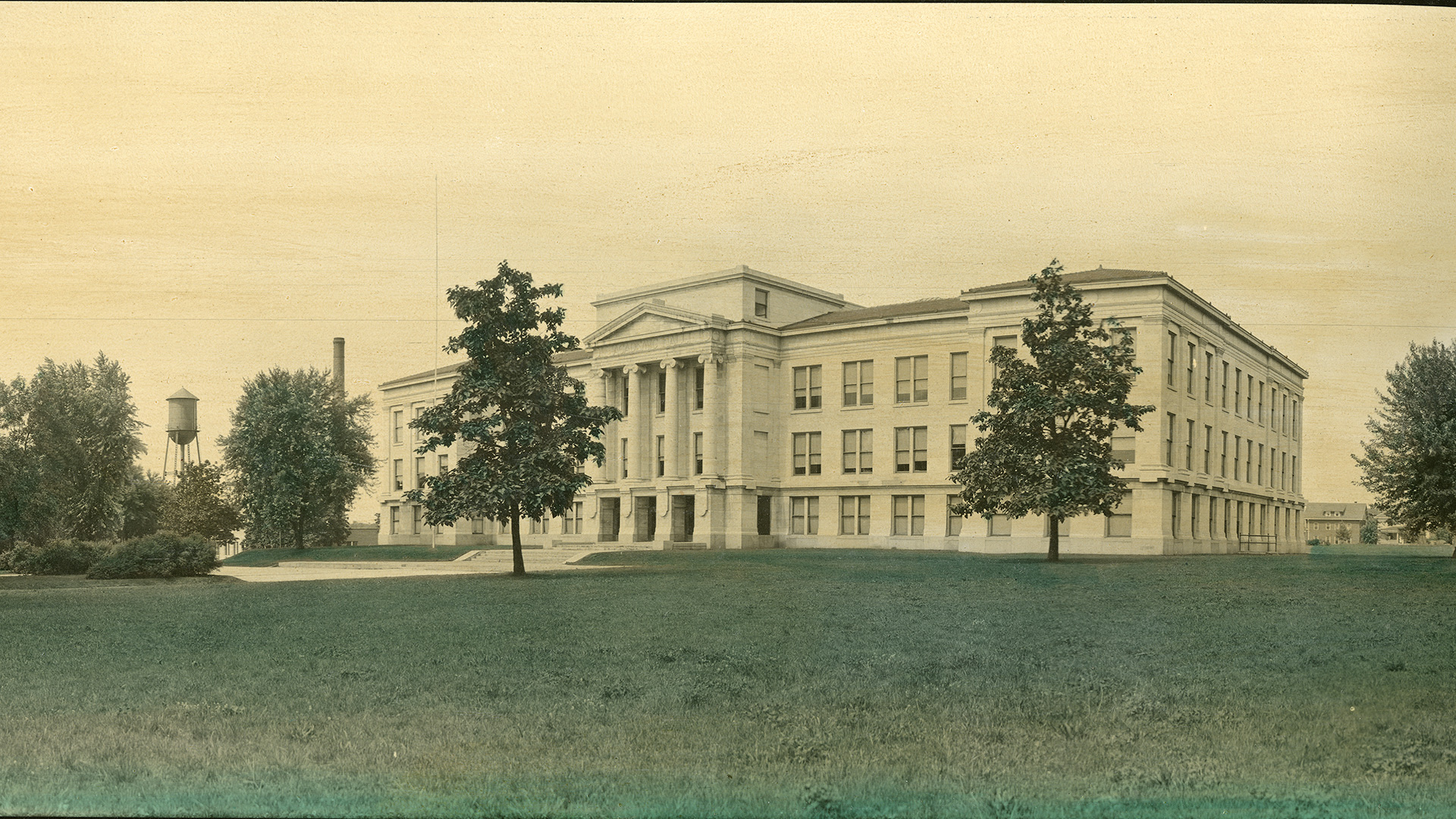History of the University

Missouri State University was founded in 1905 as the Fourth District Normal School. During its early years, the institution’s primary purpose was preparing teachers for the public school systems in the southwest region of Missouri. Here are some important dates in the history of the University:
1899
The State Fruit Experiment Station, located in Mountain Grove, Mo., is established by Missouri Legislature. It remained a state agency until 1974, when it became part of what is now Missouri State University. Therefore, it is the oldest segment of the University. The Mountain Grove campus is now part of the University System.
1905
The main campus is founded in Springfield, Mo.
June 11, 1906
The first class of 543 students starts classes in off-campus facilities.
1906-'07 school year
Maroon and white are chosen as the school’s colors. The Bear is chosen as its mascot.
August 10, 1907
The cornerstone is laid for the first building on campus.
January 1909
Academic Hall (now Carrington Hall) is completed, making it the first building on the Springfield campus.
1919
Fourth District Normal School changes its name to Southwest Missouri State Teachers College.
1945
The institution’s name changes for a second time to Southwest Missouri State College, displaying the school’s expansion beyond teacher education to liberal arts and sciences.
1963
A residence center is established in West Plains, Mo., for students taking first- or second-year classes. This grew into another campus of the University.
1972
Southwest Missouri State College changes its name to Southwest Missouri State University, in recognition of diversity of programs at the undergraduate level and development of graduate programs.
1973
Enrollment exceeds 10,000 for the first time.
1990
Enrollment exceeds 20,000 for the first time.
1995
The Missouri General Assembly gives the University its public affairs mission.
2005
The institution becomes Missouri State University, reflecting its enrollment of tens of thousands of students, as well as higher admissions standards and increased graduate programs.